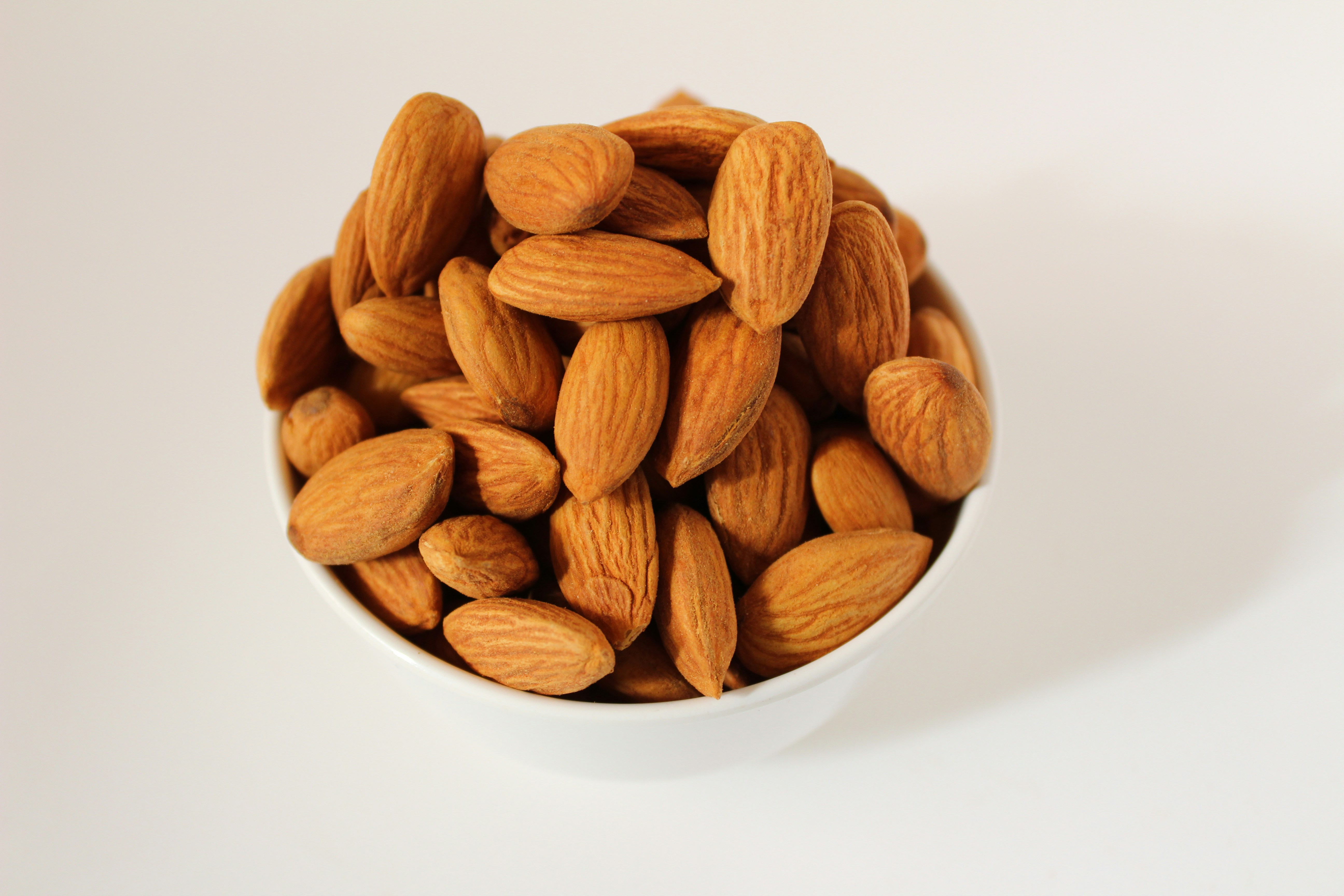What if the very snack you thought was a healthy option might actually have some downsides you weren’t aware of? Almonds are often touted as a superfood, celebrated for their nutritional benefits. But have you ever considered that they might not be the best choice for everyone? Let’s break down the reasons why almonds, while nutritious, may pose challenges in a healthy diet.
Nutritional Profile of Almonds
Almonds are undeniably nutrient-rich. They are a good source of healthy fats, protein, fiber, vitamins, and minerals. However, as with anything else, it’s essential to consider both their benefits and potential problems in the context of your diet.
Healthy Fats
Almonds are high in unsaturated fats, particularly monounsaturated fat, which is heart-healthy. But this also means that they are calorically dense. Have you ever counted how many almonds you can munch on in one sitting? Those calories can add up quickly if you’re not careful.
Protein Content
Almonds provide a good protein boost, which is beneficial for muscle repair and hunger management. However, the protein in almonds isn’t complete. If you’re relying heavily on almonds for your protein intake, you might miss out on essential amino acids that are crucial in maintaining your overall health.
Fiber Benefits
Almonds are packed with fiber, which aids digestion and can promote a feeling of fullness. But too much fiber, especially if you’re not used to it, can lead to digestive discomfort. It’s all about balance; too many almonds can upset your stomach.
Allergies and Sensitivities
While many people incorporate almonds into their diets without issues, others may face significant challenges. Allergies and sensitivities can significantly impact one’s health.
Nut Allergies
Nut allergies are among the most common food allergies. If you or someone you know has a nut allergy, then almonds are out of the question. It’s imperative to avoid almonds entirely, as the consequences of consuming them can be severe.
Sensitivities
Some individuals might not have a full-blown allergy but may experience sensitivities to nuts. Symptoms can vary from mild digestive issues to more severe reactions. If you notice discomfort after consuming almonds, it’s worth considering whether they should remain in your diet.
Weight Management Concerns
You might think that almonds can help you in your weight loss journey, but it’s essential to consider how they fit into your overall calorie intake.
High-Calorie Snack
Almonds are energy-dense, meaning that while they are nutritious, they also pack a significant number of calories in a small serving. If you snack on almonds without measuring out your portions, those extra calories could sabotage your weight management efforts.
Satiety Signaling
Although the fiber in almonds can help you feel full, it’s also easy to overeat them. Sometimes, when you’re mindlessly snacking, you may not realize how many you’re consuming. It’s crucial to be aware of your portion sizes, especially with such calorie-rich snacks.
Impact on Blood Sugar
If you’re monitoring your blood sugar levels, almonds can have mixed effects depending on your overall diet.
Benefits for Blood Sugar Control
Almonds have a low glycemic index, which means they may help stabilize blood sugar levels when consumed in moderation. They’re beneficial for those seeking to manage their blood sugar. But moderation is key. Eating large quantities can still lead to blood sugar spikes, especially if combined with other high-carb foods.
Potential for Overconsumption
When you’re trying to maintain stable blood sugar, focusing on portion control is critical. The tendency to snack on almonds unconsciously can pose risks for those with blood sugar management concerns. It’s essential to keep track of not just what you eat, but how much of it.
Environmental Impact
You might not have thought about the environmental aspects of your diet, but it’s increasingly relevant in today’s conversation about food.
Water Usage
Almonds require a significant amount of water to grow, and in regions where water is a precious resource, this can be a real concern. Each pound of almonds requires about 1,900 gallons of water to produce. If sustainability is important to you, this is definitely a point to consider.
Agricultural Practices
The farming practices associated with almond production can have environmental ramifications, like pesticide use and habitat disruption. Many people are now opting for locally-sourced foods or products with sustainable farming practices, and this could be a reason to reconsider how often you reach for that bag of almonds.
Oxalate Content
Almonds contain oxalates, which can lead to health issues for some people, particularly those predisposed to kidney stones.
What Are Oxalates?
Oxalates are naturally occurring compounds found in many plant foods, including almonds. For people who are sensitive to oxalates, consuming too many foods high in oxalates may lead to crystal formation, resulting in kidney stones.
Managing Oxalate Intake
If you’re prone to kidney stones or have been advised to limit oxalate intake, it may be prudent to limit your almond consumption. It’s essential to balance your diet with a variety of foods while being aware of oxalate levels in what you consume.
Digestive Issues
While the fiber in almonds is beneficial for many, it can be a double-edged sword.
Gas and Bloating
Eating a lot of almonds can lead to gastrointestinal distress, including gas and bloating. If you find that you frequently experience these symptoms after snacking on almonds, it might be time to cut back or assess how they fit into your overall dietary habits.
Gradual Introduction
If you’re not used to a high-fiber diet, it’s advisable to introduce almonds gradually. Doing so can help your digestive system adjust without any unpleasant side effects. Listen to your body: it often has a way of signaling when something isn’t quite right.
Considerations for Specific Diets
Different diets have varying requirements, and almonds may not align with all of them.
Keto and Paleo Diets
Almonds can be a fantastic snack on Keto and Paleo diets, providing both healthy fats and a little protein. However, if you’re strictly limiting your overall carb intake, it’s essential to consider how almonds fit into your daily carb quota.
Vegan and Plant-Based Diets
For those following plant-based diets, almonds offer protein and healthy fats. However, it is vital to balance your food options to ensure you’re also getting sufficient nutrition from a variety of sources.

Alternatives to Almonds
If you’ve decided that almonds may not be the best fit for you, there are plenty of alternative snacks available.
Other Nuts
Consider walnuts, pecans, or cashews. Each of these options has different nutrient profiles. For instance, walnuts are high in omega-3 fatty acids, while cashews provide different vitamins and minerals.
Seeds
Chia seeds, flaxseeds, and sunflower seeds are excellent alternatives that offer fiber, protein, and healthy fats without some of the downsides associated with almonds. They can be just as versatile and satisfying in your diet.
Dried Fruits
If you’re looking for sweet alternatives, consider dried fruits. They offer natural sugars, vitamins, and minerals—just be cautious with portion sizes to avoid excessive sugar.
Conclusion: Making Informed Choices
Incorporating almonds into your diet can have numerous benefits, but it’s essential to remain aware of the possible downsides. By considering your unique dietary needs, allergies, and lifestyle, you can make more informed choices that ultimately benefit your health. Almonds might still be part of your diet, but understanding their potential problems allows for mindful consumption. After all, the more you know, the better you can tailor your diet to suit your individual health goals and lifestyle.





